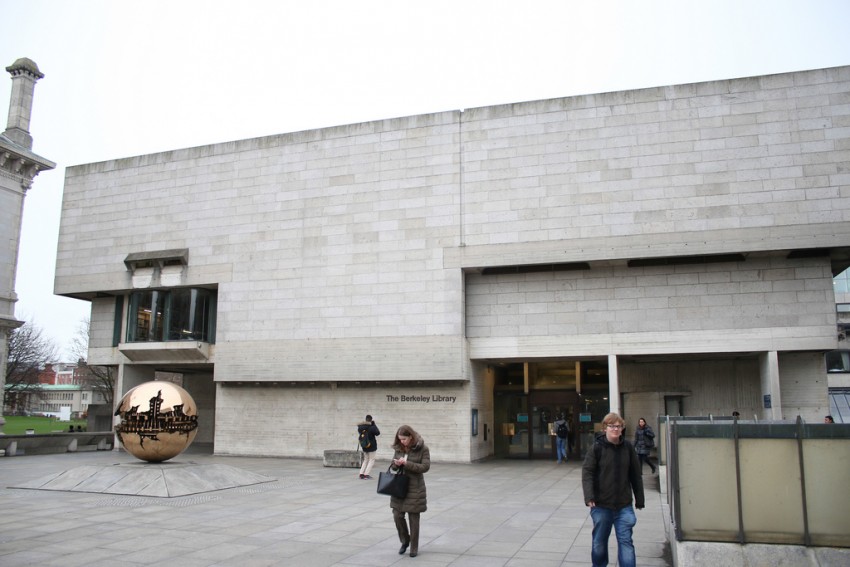Sinéad Baker | Deputy Online Editor
If anything has become evident this year, it has been the truly terrifying mentality of the College authorities: their disregard for the opinions of Trinity’s staff and students, the history of our college and the importance of our vital services. For anyone who needs catching up, let me reflect on all of the insults to our university that the powers that be have adopted within the last year alone. Forgive me, the list is long.
College waited five months after making the decision to tell the capitations committee
In the space of only one year, the College has announced that it will raise accommodation fees by 4% for the next academic year, that the Scholarship fund is at risk of a 10% cut and the Director of The College Health Service has decided to push ahead with the Tobacco-Free Trinity Initiative despite a student vote against it. The Entrance Exhibition Award is to be cut by half, postgraduate fees for EU students are to be increased by 3% and the fees for non-EU students are set to increase from the next academic year. On top of this, funding for all capitated bodies (Dublin University Central Athletic Club (DUCAC), the Central Societies Committee (CSC), Trinity College Students’ Union (TCDSU), the Graduate Students’ Union (GSU), and Trinity Publications) has been cut by 5% a year for the next two years, after College waited five months after making the decision to tell the capitations committee.
While College is investing in a Global Relations Strategy, they decided to house all future third-year Scholars in Trinity Hall, a decision reportedly made without consulting the Working Group on Residential Accommodation or the Scholars’ Committee.They have even considered a degree of privatisation at the most recent Global Graduate Forum. Services such as the sports centre are under pressure to increase their commercial activity, which will potentially result in students paying a higher charge or an increase of non-students using the already overwhelmed facilities. This doesn’t even begin to tackle the issues we’re facing with the library, or the dangerously underfunded and understaffed health centre.
“Board is the final driver, not a Town Hall”
Although this list alone makes me angry, what makes all of these cuts even more insulting, and quite frightening, is the disregard for the students, the staff and history of Trinity that they reveal. College has set up Planning Group, which operates outside of defined Board and University Council structures, and has no student representation. There has been a blatant disregard for the wishes of the college community with regards to the rebranding exercise called the ‘Identity Initiative’, which was objected to by both the fellows and the Students’ Union. Even at a recent Town Hall meeting on the matter, the Provost asserted: “Board is the final driver, not a Town Hall”.
To top it all off, the Provost has reportedly spent €3.71 million on consultants fees this year, yet College cites limited finances as reason to cut funds to our services. This lack of consideration of the opinions of any body of students or staff, whether it be dismissal of the objections to the new logo, the vote against Tobacco Free Trinity Initiative or the concerns expressed about the future of the Scholars, sets a dangerous precedent for what might be attempted in the future.
The hypocrisy of a university that claims to be proud of its history and traditions, yet aims to hide them in commercial exercise
For me, it’s not only the new logo, or indeed this entire project, that I object to, but also what its adoption would represent: the hypocrisy of a university that claims to be proud of its history and traditions, yet aims to hide them in commercial exercise – a university that focuses its resources on attracting new students and higher rankings rather than respecting the students and staff that it already has.
None of these decisions have been made without criticism. However, despite the work and public complaints of many college committees, petitions and, of course, angry Facebook comments, nothing is changing. The College this year has proven that it can do what it wants.
Last month, reports emerged of a library sit-in organised by the Students’ Union, which has since been cancelled due to an agreed increase in library hours. The sit-in, according to Students’ Union President Tom Lenihan, would no longer “hit [them] where it hurts”. Although this reason seems fair, to totally abandon the case for action seems a mistake to me. The College has us where it wants us: few of us are willing to take away time from our studies at this time of year. But these issues aren’t going away, and next year is really when it’s going to affect us.
We need to take advantage of the sense of solidarity and anger that has been steadily growing
The fact is that the last large on-campus protest was in 2009, and by this time next year the majority of us in this college will never have experienced direct action. For the first time in my college life the issues we’re protesting are local and directly affect us. Rather than demonstrating a tokenistic show of solidarity, we are in a position to affect real change. The staff, the fellows and the students have been expressing the same concerns all year. We need to take advantage of the sense of solidarity and anger that has been steadily growing.
The reality is that the ‘student movement’ has started to rely a lot more on lobbying than turning to direct action. That’s fine when these methods are enough. Except they just aren’t anymore. Hypocrisy, secrecy and blatant disregard for the needs of anyone in this community have been the defining features of this year, and almost none of us have done anything about it.
Photo by Andrew Murphy for The University Times







